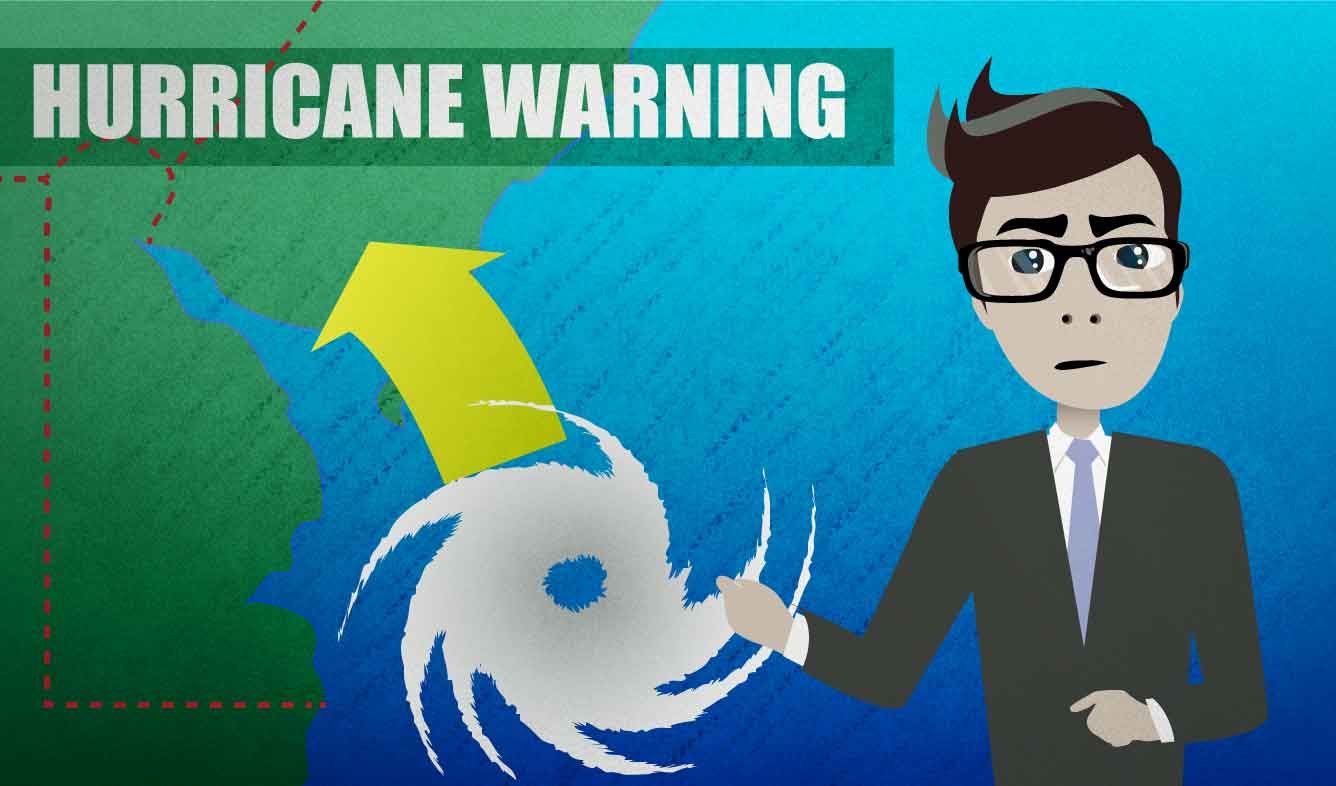“There is a hurricane warning in effect throughout Delaware and southern New Jersey.”
There's a hurricane headed toward you. You turn on the TV news to find out about it. The weatherman says this.
There is a hurricane warning in effect throughout Delaware and southern New Jersey.
Want Video and Sound? Follow us on YouTube

There is/are (something)(somewhere)
It's common to use "there is ___" or "there are ___" when you're describing a scene or situation:
When you go in his office, there are books scattered all around.
You could also describe a scene this way:
When you go in his office, books are scattered all around.
But that's not as common, because it doesn't communicate the sense that you're giving a description. It sounds more like you're stating a fact. "Facts" are pieces of information like this:
Math textbooks cost a lot of money.
But a "description" has a slightly different feeling. It kind of invites the listener to imagine that they are in the situation you're describing:
There was a math textbook at the campus bookstore that cost a hundred and ninety dollars!
So when you're describing a scene, it's more common to use "There is", "There are", "There were", etc.:
There were books scattered all over.
a hurricane warning
Some branches of the government monitor the weather, and release warnings when dangerous weather is likely to occur. If you watch or read the news, you might find out about:
tornado warnings
tsunami warnings
flash flood warnings
By the way, "hurricanes" are big storms that happen in the Atlantic Ocean. In the Pacific Ocean, they're called typhoons.
(something) is in effect
The example above says that a hurricane warning "is in effect". That means that there is currently an active hurricane warning.
Other things that can be "in effect" are laws, policies, rules, etc.:
There's a new "no-bag" policy in effect at Spartan Stadium. It's supposed to prevent people bringing weapons into the stadium.
Several states have laws in effect banning cell phone usage while driving.
When a rule, law, or warning first begins to be in effect, you say that it was "put into effect":
A ban on indoor smoking was put into effect in New York in 2003.
(something is happening) throughout (a location)
If something happens "in" Delaware, that might mean that it's only in one specific city or one part of the state. But something that happens "throughout" Delaware is all over the state, or in several different locations spread across the state.
Things can happen "throughout" a country, a state, a region, a company, an industry, a building, etc. You can also talk about things that happen "throughout" a time period:
England and France repeatedly warred with each other throughout the Middle Ages.
